
Health Services Research
MS Program
2022-2023
Student and Advisor Handbook
Colorado School of Public Health
HSR MS Program | 2022-2023 Student and Advisor Handbook
Revised July 2022 2
Handbook Table of Contents
Message from the Associate Dean for Academic Affairs ......................................................................... 3
Policies Subject to Change ...................................................................................................................... 4
Colorado School of Public Health ............................................................................................................ 5
Administration ........................................................................................................................................ 6
Frequently Used Phone Numbers ........................................................................................................... 7
General Information ................................................................................................................................ 8
Academic Policies ................................................................................................................................... 8
Academic Information ........................................................................................................................... 17
Degree Plans ......................................................................................................................................... 20
MS Program Guidelines ........................................................................................................................ 22
Organization and Content of Courses ................................................................................................... 25
HSR Core Program Faculty Policy ......................................................................................................... 28

Colorado School of Public Health
HSR MS Program | 2022-2023 Student and Advisor Handbook
Revised July 2022 3
Message from the Associate Dean for Academic and Student Affairs
Welcome to the Colorado School of Public Health!
This is an extraordinary time to be working on community and
population health. There is a rejuvenated realization that many
of the determinants of health lay not in medical care, but in our
social and physical communities, the exposures we receive
from the environment, the health care systems that we have
access to, and the choices we make in our daily behaviors.
We are a collaborative school of public health, with a strong
partnership between three major public universities, and also
with our ties to and belief in the importance of communities
using scientific evidence to develop their own priorities and
strategies for achieving health.
As you embark on your studies, I encourage you to reach out to faculty for mentorship. There are
vast opportunities for you to be involved in education, research and practice. I encourage you to
get involved beyond the classroom. It is our vision that together we will learn and work to allow all
members of our communities to reach their highest potential for healthy, productive lives.
As the Associate Dean for Academic and Student Affairs, I encourage you to explore all of the
opportunities that the Colorado School of Public Health has to offer.
Sincerely,
Danielle (Dani) R. Brittain, PhD
Associate Dean for Academic and Student Affairs
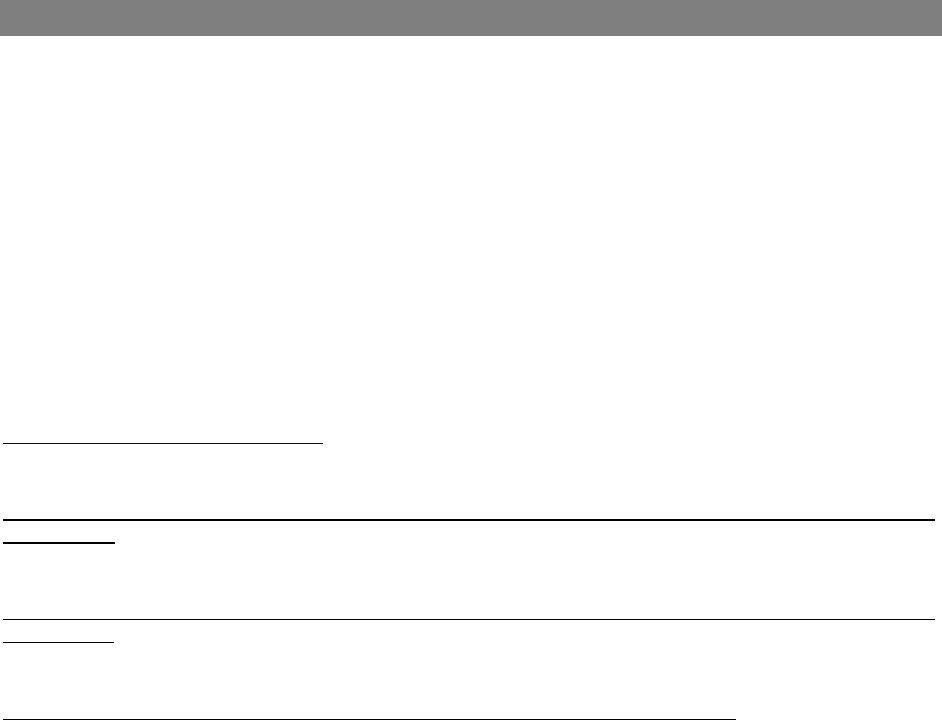
Colorado School of Public Health
HSR MS Program | 2022-2023 Student and Advisor Handbook
Revised July 2022 4
Policies Subject to Change
This handbook complements the policies of the Graduate School. It includes information specific to the
Colorado School of Public Health and the Health Services Research MS Graduate Program. Please
retain it for reference on academic policies, thesis, graduation, and other topics. This handbook was
accurate and up to date when printed in July 2017. It does not constitute a contract with the University
of Colorado Denver, either expressed or implied. The Graduate School and the Health Services
Research Graduate Program reserves the right at any time to change, delete, or add to any of the
provisions at their discretion. Furthermore, the provisions of this document are designed to serve as
firm guidelines rather than absolute rules, and exceptions may be made on the basis of extenuating
circumstances.
Websites
School Site:
https://coloradosph.cuanschutz.edu/
Program Site:
http://www.ucdenver.edu/academics/colleges/PublicHealth/Academics/departments/Biostatistics/Pages/w
elcome.aspx
ColoradoSPH Academic and Student Affairs Resources:
http://www.ucdenver.edu/academics/colleges/PublicHealth/resourcesfor/currentstudents/academics/Page
s/index.aspx
Graduate School Policies and Resources:
http://www.ucdenver.edu/academics/colleges/Graduate-School/Pages/default.aspx

Colorado School of Public Health
HSR MS Program | 2022-2023 Student and Advisor Handbook
Revised July 2022 5
Colorado School of Public Health
Overview
The Colorado School of Public Health is a collaborative school of public health with the University of
Colorado, Colorado State University, and the University of Northern Colorado. It is the first school of
public health in a nine-state region of the Rocky Mountain West.
Emerging infectious diseases, chronic diseases, emergencies, lifestyles, the environment, disparities
and various other factors impact the health of our communities. The Colorado School of Public Health
aims to meet the challenges that our communities face by preparing a public health work force with the
skills, research, knowledge, and values necessary to advance the health of our communities. The
combined faculty, located at the three partner institutions, is at the forefront of various health issues
and research, proactively addressing and improving the lives of our children, adults and aging
populations.
As part of the commitment to meeting the training and research needs of the public health workforce,
the Colorado School of Public Health offers educational programs that include masters, doctoral,
residency, and certificate programs. Descriptions and materials are available through the Colorado
School of Public Health website.
Mission Statement
The mission of the Colorado School of Public Health is to promote the physical, mental, social and
environmental health of people and communities in the Rocky Mountain Region and globally. The
mission will be accomplished through collaborations in education, population-based research, and
community service that bring together institutions, agencies, and diverse populations.
Vision Statement
The Colorado School of Public Health, a collaborative, multi-disciplinary, multi-institutional, learning,
research and service environment, will inspire academicians, practitioners and students of public health
to work collaboratively to assure that all people and communities are healthy and their environment
sustainable.
Diversity Statement
The Inclusion, Diversity and Health Equity mission of the Colorado School of Public Health is to build a
diverse and representative academic community, which recognizes the importance of social and
economic justice in relation to health. The Colorado School of Public Health will work to build an
inclusive, culturally competent institution, which includes the environment, policies and procedures,
faculty, staff, leadership and student body.
Accreditation
The Colorado School of Public Health received school-wide re-accreditation in June 2016 from the
Council on Education for Public Health (CEPH). CEPH is an independent agency recognized by the U.S.
Department of Education to accredit schools of public health and public health programs outside of
schools of public health. As an accredited school of public health, graduates at the masters and doctoral
levels are eligible to sit for the Public Health Certification examination.

Colorado School of Public Health
HSR MS Program | 2022-2023 Student and Advisor Handbook
Revised July 2022 6
Administration
University Leadership & Academic Partners
Donald M. Elliman Jr.
Chancellor, University of Colorado Denver &
Anschutz Medical Campuses
Andrew Feinstein, PhD
President, University of Northern Colorado
Joyce McConnell, JD, LLM
President, Colorado State University
Colorado School of Public Health Leadership
Jonathan Samet, MD, MS
Dean
Cathy Bradley, PhD
Associate Dean of Research
Dani (Danielle) Brittain, PhD
Associate Dean for Academic and Student Affairs
Ned Calonge, MD, MPH
Associate Dean for Public Health Practice
Sam MaWhinney, ScD
Associate Dean for Faculty Affairs
Teresa Sharp, PhD
Director, University of Northern Colorado
Christine Gillen, MS
Associate Dean for Finance and Administration
Tracy Nelson, PhD, MPH
Director, Colorado State University
Cerise Hunt, PhD, MSW
Associate Dean for Equity, Diversity & Inclusion
Department Chairs
Lee Newman, MD, MA
Interim Chair, Environmental and Occupational Health
Jill Norris, PhD, MPH
Chair, Epidemiology
Jenn Leiferman, PhD
Chair, Community and Behavioral Health
Glen Mays, PhD
Chair, Health Systems, Management & Policy
Debashis Ghosh, PhD
Chair, Biostatistics and Informatics
Anschutz Medical Campus
Katherine Brumfield, MA
Career Services Manager
Thuy Nguyen, MPS
Assistant Director of Human Resources
Tonya Ewers
Director of Marketing & Communications
Lindsey O’Reilly
Admissions Processing Specialist
Kayla Gray
Student Lifecycle Sr. Professional
Bobbi Ortega
Executive Assistant to the Dean
Katie Guthmiller
Recruitment & Outreach Sr. Professional
Tony Romero, MA
Assistant Director, Evaluation & Accreditation
Laura Hager, MPA
Assistant Director, Enrollment Operations
Brenda Witt
Academic Affairs Sr. Professional
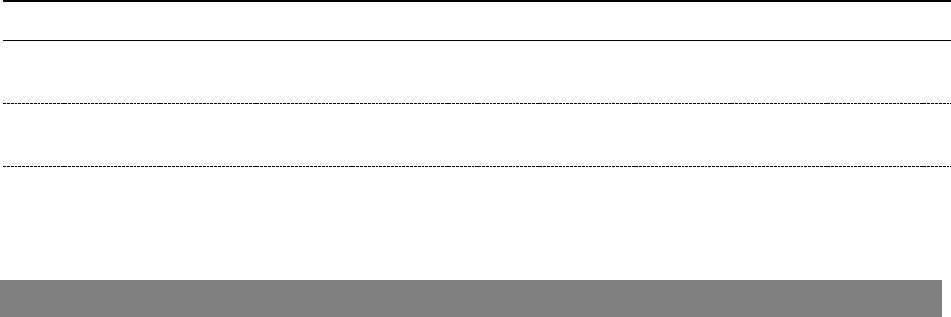
Colorado School of Public Health
HSR MS Program | 2022-2023 Student and Advisor Handbook
Revised July 2022 7
Graduate School
Jennifer Richer, PhD
Dean
Teresa Bauer-Sogi
Director, Academic and Student Services
Carol Hadd
Executive Assistant to the Dean
Madison Parker
Academic Services Professional
Kathryn Wennerstrom
Director, Finance and Administration
Patricia Goggans
Events Coordinator
Frequently Used Phone Numbers
Name: Phone Number Room
ColoradoSPH Office of Student Affairs 303-724-4613
Richard Lindrooth- Program Director 303-724-5165
Lanee Bounds- HSMP Department Admin 303-724-6698
Bookstore 303-724-2665
Bursar's Office 303-556-2710
Campus Information 303-724-6245
CU Online Help Desk (Canvas) 303-315-3700
Disability Resources and Services 303-724-5640
Health Sciences Library 303-724-2152
Financial Aid Office 303-724-8039
Graduate School 303-724-2915
Ombuds
(Counseling Services/Conflict Resolution) 303-724-2950
Parking 303-724-2555
Payroll 303-735-6500
Registrar 303 724-8059
Student Assistance Office 303-724-7686
Bldg 500, Rm E3360
Bldg 500, Rm E3315
Bldg 500, Rm E3316
Ed2 S, 1
st
Fl
Ed2 N, 3
rd
Fl
Bldg 500, Rm W110
12950 E. Montview Blvd.
Ed2 N, 3
rd
Fl
Bldg 500, Rm C5000
Bldg 500, Rm C7005
Bldg 500, 1
st
Fl West
Boulder Campus
Ed2 N, 3
rd
Fl
Ed2 N, 3
rd
Fl
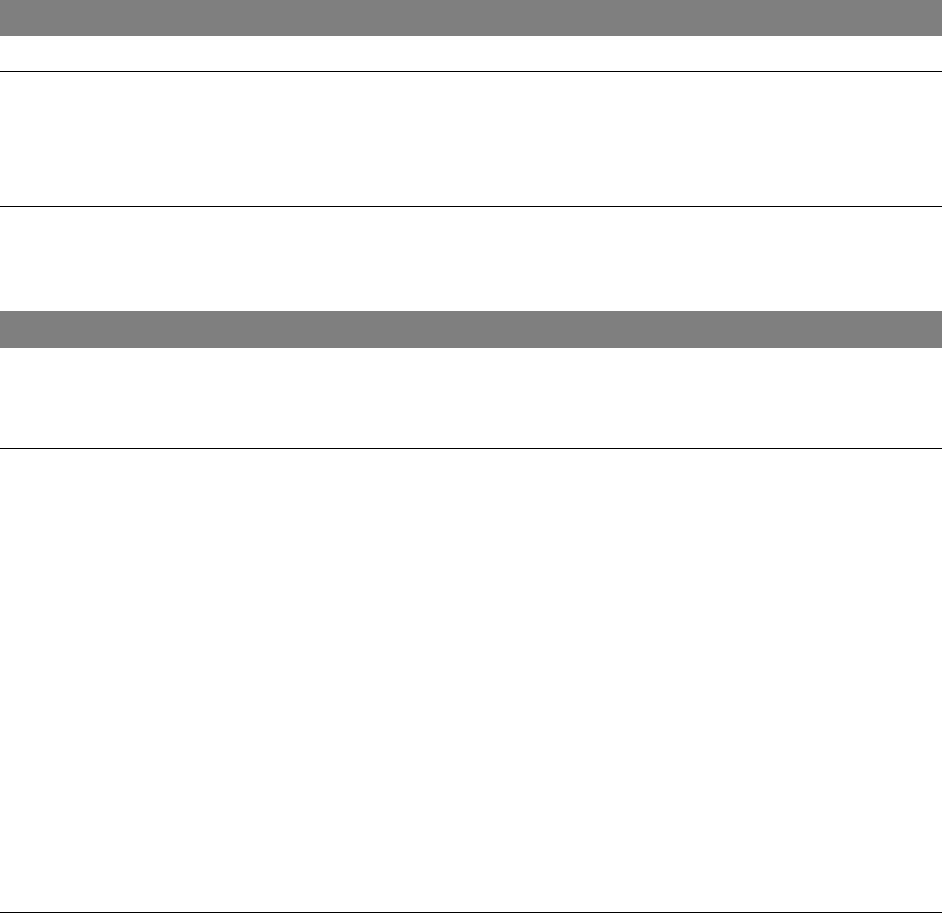
Colorado School of Public Health
HSR MS Program | 2022-2023 Student and Advisor Handbook
Revised July 2022 8
General Information
Computer Labs
Research and study opportunities are enhanced through the various resources available to students,
including: student computing labs (Ed1 CTL P26-1501, Ed2 N CTL P28-2201 & RC1 N CTL P18-1309) and
student rooms in the Education 1, Education 2, and the Research 1 North Buildings.
Scheduling Rooms for Meetings or Defense
To schedule the conference rooms (Ward Darley, Teleconference Room, or Dean’s Conference Room)
on the 3rd Floor of Building 500 or another room at the Anschutz Medical Campus for a committee
meeting or defense, please contact Brenda Witt at brenda.witt@cuanschutz.edu
Academic Policies
Family Educational Rights and Privacy (FERPA)
Purpose of FERPA
FERPA deals specifically with the education records of students, affording them certain rights with
respect to those records. For purposes of definition, education records are those records, which are:
1. Directly related to a student and,
2. Maintained by an institution or a party acting for the institution.
FERPA gives students who reach the age of 18 or who attend a post-secondary institution the right to
inspect and review their own education records. Furthermore, the right to request amendment of
records and to have some control over the disclosure of personally identifiable information from these
records, shift from the parent to the students at this time.
FERPA applies to the education records of persons who are or have been in attendance in post-
secondary institutions, including students in cooperative and correspondence study programs, video
conference, satellite, internet or other electronic forms. FERPA does not apply to records of applicants
for admission who are denied acceptance or, if accepted, do not attend an institution.
Directory Information
FERPA directory information is information contained in your education record that generally would
not be considered harmful or an invasion of privacy if disclosed. Under current CU Denver policy, the
following information is designated as directory information:
1. name
2. address, telephone number, and email address
3. dates of attendance
4. registration status
5. class
6. major
7. awards
8. honors
9. degrees conferred

Colorado School of Public Health
HSR MS Program | 2022-2023 Student and Advisor Handbook
Revised July 2022 9
10. photos
Although these items are designated by CU Denver as directory information, only a limited amount of
this information is routinely disclosed by CU Denver officials and the University retains the discretion to
refuse to disclose directory information if it believes such disclosure would be an infringement of your
privacy rights.
Nondisclosure of Directory Information
Students may ask the university not to publicly disclose directory information. Please note, however,
that if you are seeking employment, the Registrar's Office cannot release your enrollment, degree
status or major to anyone unless you come to the Registrar's Office with a photo ID.
Forms to prevent disclosure of directory information can be obtained at The Anschutz Medical Campus
Registrar’s Office or via the Registrar’s website at http://www.ucdenver.edu/student-
services/resources/registrar/Pages/default.aspx. Questions regarding your rights under FERPA should
be directed to the Registrar's Office:
Anschutz Medical Campus:
Phone: 303-724-8059
Fax: 303-724-8060
Email: student.se[email protected]u
For additional information regarding FERPA, please visit the complete policy on the Registrar’s website
at:
http://www.ucdenver.edu/anschutz/studentresources/Registrar/StudentServices/FERPA/Pages/default.
aspx
Immunization Policy
To ensure that a minimum standard of public health and safety is provided for our faculty and
students, all students matriculating into any ColoradoSPH program are required to provide proof of
immunizations for measles, mumps, rubella, and tuberculosis through CastleBranch, in addition to
official documentation of COVID-19 vaccination or medical exemption. The Office of Academic &
Student Affairs must receive proof of COVID-19 vaccination or exemption in CastleBranch by August
15, 2022. Other immunizations via CastleBranch are due at least two weeks
prior to the start of a student’s first term in the program. Students who do not submit immunization
records at the specified time may experience a hold on future registration and/or be administratively
withdrawn from classes until proof of immunizations has been received.
Health Insurance Requirement
Students enrolled in one or more credit hour are required to have a University student health insurance
plan, unless proof of comparable coverage can be verified. Students are required to have insurance at
their home campus only. If a student wishes to waive the insurance requirement due to comparable
personal coverage, they may do so by submitting a waiver request the student health office at their
home campus. Instructions for waiving this requirement can be found here:
http://www.ucdenver.edu/life/services/student-health/insurance/Pages/Waiving-Health-Insurance.aspx

Colorado School of Public Health
HSR MS Program | 2022-2023 Student and Advisor Handbook
Revised July 2022 10
Background Check Policy
Students matriculating into any ColoradoSPH program are required to pass a criminal background
investigation. The background check is conducted during the admissions process. Students are
required to pay a non-refundable processing fee for conducting the background check. Students who
work at the university also need to submit the processing fee and complete the student background
check, as additional criteria are specified beyond that required for employment. This must be
completed before course registration can begin.
Student Academic Honor and Conduct Code
Education at the Colorado School of Public Health (ColoradoSPH) is conducted under the honor
system. Matriculation at the Colorado School of Public Health implies the acceptance of, and
adherence to, the Student Academic Honor and Conduct Code. All students who have entered
graduate and health professional programs should have developed the qualities of honesty and
integrity, and each student should apply these principles to his or her academic and subsequent
professional career. All students are expected also to have achieved a level of maturity reflected by
appropriate conduct at all times. The Honor and Conduct Code of UC Denver, and the Academic
Appeals Process of the Graduate School also govern health services research Graduate students.
Please see the Graduate School academic honor code at the end of this handbook.
Although it is not possible to list every situation that violates the Student Academic Honor and Conduct
Code, the following examples provide a frame of reference:
1. Academic Honesty
Students should adhere to the highest standards of academic honesty and integrity. Examples of
behavior that violates these standards include: plagiarism (including the undocumented use of internet
and web-based information), cheating, illegitimate possession and/or use of examinations, violation of
the ethical standards for conducting research, and falsification of official records.
2. Professional Conduct
As future health professionals, students should also adhere to the highest standards of professionalism.
Examples of unprofessional conduct include misrepresentation of effort, credentials, or achievement in
either the academic or professional setting; any action that compromises the quality or safety of
patients or study subjects; violation of patient or study subject confidentiality; IRB violations; and any
other conduct unbefitting a professional public health practitioner, researcher, or educator.
3. Alcohol and Drug Use
Alcohol and/or drug abuse compromises the student's ability to learn and to practice as a public health
professional and thus is considered unprofessional conduct. Students who have a problem with alcohol
and/or drugs should seek assistance from services available on campus or elsewhere. The sale of drugs
or the possession of narcotics is against the law. To minimize the potential for alcohol abuse at campus
functions, students must adhere to current University policy governing the consumption of alcohol on
campus. Please note that the new marijuana laws in Colorado do not change existing University of
Colorado campus policies that prohibit the possession, use or distribution of marijuana by students,
employees and all visitors on university property. For further information, please refer to this website:
https://graduateschool.ucdenver.edu/forms-resources/resources

Colorado School of Public Health
HSR MS Program | 2022-2023 Student and Advisor Handbook
Revised July 2022 11
4. Respect for the Rights and Property of Others
Students should always conduct themselves in a manner that recognizes the rights and property of
others. Examples of inappropriate behavior include: theft, damages to University or personal property
of others, disruption of educational or other activities on campus, illegal use of University facilities,
sexual harassment, physical assault, and any conduct that threatens the health or safety of others.
Any student found to have committed acts of misconduct (including, but not limited to cheating,
plagiarism, misconduct of research, breach of confidentiality, or illegal or unlawful acts) will be subject
to the procedures outlined in the Honor Code.
Additional information regarding the ColoradoSPH Honor Code can be found online at:
https://coloradosph.cuanschutz.edu/education/calendars-policies
Academic Grievance Policy
The Colorado School of Public Health (ColoradoSPH) recognizes that a student may have grievances
about different aspects of his or her academic program. ColoradoSPH is committed to addressing these
grievances promptly and professionally and reaching a fair resolution through a formal and unbiased
process. In the statements below, Associate Dean refers to the ColoradoSPH Associate Dean for
Academic Affairs.
Student Rights
All ColoradoSPH students have the right to:
1. Competent instruction
2. Access to instructors outside of class during a specified set of office hours or by appointment
3. Clearly understand the grading system by which he or she will be judged, and expect that the
grading system as determined by the instructor will be adhered to for the duration of the course
4. Be treated with respect and equality
5. Be treated fairly according to standards stated within the student handbook and each course
syllabus
Formal Grievance Process
Step 1
Because the filing of an Academic Grievance is considered a serious matter, the student is strongly
encouraged to seek informal resolution first by discussing the matter with the faculty member or
administrator involved. The student and faculty/administrator should document the date, time, and
outcome of the meeting for future reference. If the student feels he or she needs assistance in
discussing or resolving the issue, a University of Colorado Denver Ombuds person is available to help
students facilitate a resolution related to any type of grievance. That office can be reached at
303.724.2950. Additional information about the Ombuds Office can be found on their website:
http://www.ucdenver.edu/about/departments/OmbudsOffice/Pages/OmbudsOffice.aspx.
Colorado School of Public Health
HSR MS Program | 2022-2023 Student and Advisor Handbook
Revised July 2022 12
Step 2
The student should contact the Chair of the Department to which the faculty member belongs. The
Chair and the student will work together to resolve the grievance informally. At their election, the
Associate Dean may be asked to facilitate these conversations. The student might seek guidance from
the Associate Dean in this step. The Associate Dean will act as a mediator between the student and
faculty member to help resolve any miscommunications between the parties.
Step 3
If an informal resolution cannot be reached, the Associate Dean will meet with the student to
determine if the grievance is one that can be legitimately pursued through the official grievance
process.
Step 4
If the Associate Dean and the student agree to move forward, the Hearing Committee must be
constituted within 30 days of indication from the student or the chair that the grievance cannot be
resolved at the department level.
Step 5
A report will be prepared by the Associate Dean to include a personal statement from the individual
filing the grievance or appeal outlining the grievance or appeal, the date(s) of the alleged incident, and
all supporting documentation and evidence. This report will be sent to the faculty member with whom
the grievance has occurred.
Step 6
Hearing Committee members shall be contacted to schedule a hearing. All committee members shall
commit to being present on the agreed date and time.
Step 7
One week in advance of the hearing, all Hearing Committee members will be informed in writing of the
hearing committee composition, the Associate Dean’s written report, any other evidence and
testimony to be presented, and the resolutions each party believes to be acceptable.
Step 8
On the date of the hearing, the Hearing Committee will privately and separately interview each party.
At that time, any additional information, documentation and testimony regarding the grievance can be
introduced. All testimony will be audio recorded for accuracy. The recording will be destroyed at
resolution of the grievance.
The Associate Dean, or his/her designee, shall be present at the hearing. The Associate Dean will not
have voting power, but will oversee the hearing to ensure procedures are followed, proceedings are
conducted with respect for all parties, and that all parties are satisfied that their testimony was
presented.
Step 9
All testimony and documentation will be strictly confidential. This confidentiality will be waived only if
the grievance hearing results in legal action to the extent that grievance testimony and documentation

Colorado School of Public Health
HSR MS Program | 2022-2023 Student and Advisor Handbook
Revised July 2022 13
need to be available to the court. All parties shall be advised that no hearing participant should use any
information from the hearing in any way to affect future interactions among the parties.
Step 10
The Hearing Committee will send a formal written recommendation to the Associate Dean of the
ColoradoSPH within five (5) working days. The Associate Dean will make a formal recommendation to
the Dean based on all of the evidence and testimony within five (5) working days of receipt of the
Hearing Committee’s recommendation.
Step 11
All parties will consider the Dean’s decision final and binding.
Step 12
Upon acceptance of the formal decision by the Dean, the Associate Dean will be notified and will inform
all relevant parties of the decision. It is the intent of the Colorado School of Public Health that all
individuals associated with the ColoradoSPH have the right to bring grievances to the appropriate
School officials and that they be granted full opportunity to be heard, treated with respect, and due
process as they seek redress of their grievances. The full Academic Grievance policy can be found online
at:
https://coloradosph.cuanschutz.edu/education/calendars-policies
Non-Discrimination Policy Statement
The University of Colorado, including the Colorado School of Public Health, will not discriminate
against any applicant, student or employee because of race, color, religion, sex, national origin, age,
disability, creed, sexual orientation, or veteran status. The University of Colorado and the Colorado
School of Public Health will take affirmative action to ensure that applicants, students and employees
are treated without regard to their race, color, religion, sex, national origin, age, disability, creed, sexual
orientation, or veteran status. The University of Colorado Non-Discrimination Policy can be found at:
https://www.cu.edu/regents/Policies/Policy10A.htm
Sexual Misconduct Policy Statement
It is the policy of ColoradoSPH to maintain the community as a place of work, study, and residence free
of sexual harassment or exploitation of students, faculty, staff or administrators. All forms of sexual
misconduct, including sexual harassment, are prohibited on campus and in any of the School’s
programs. ColoradoSPH is committed to taking appropriate action against any member of the
University community who violates the policy. No retaliation will be taken against any individual for
making a legitimate complaint. It is a violation of the ColoradoSPH policy to knowingly make a false
accusation. For more information, please refer to the Title IX overview:
https://www1.ucdenver.edu/offices/equity/university-policies-procedures
Policy on Pregnancy and Parenting
The Colorado School of Public Health does not discriminate against any student on the basis of
pregnancy, parenting status, or related conditions. Absences due to medical conditions relating to
pregnancy will be excused for as long as deemed medically necessary by the student’s doctor and the
student will be given the opportunity, wherever possible, to make up missed work. Students needing

Colorado School of Public Health
HSR MS Program | 2022-2023 Student and Advisor Handbook
Revised July 2022 14
assistance can seek accommodations from the Office of Disability, Access, and Inclusion
(disabilityac[email protected]u) or the Title IX Coordinator for ColoradoSPH (Dani Brittain,
Danielle.Brittai[email protected]u).
Policy on Email
Email is an official means of communication for ColoradoSPH students. All official email related to
enrollment at ColoradoSPH (including, but not limited to, financial aid, billing, transcripts, school
announcements.) will be sent to each student’s assigned CU email address (name@ucdenver.edu),
regardless of the student’s home campus. Students are responsible for checking their CU email on a
regular basis. The student Academic Honor and Conduct Code should be followed when using
university email and other forms of university electronic communication and devices.
Students with a home campus of CSU or UNC should also frequently check their home campus email
accounts, as any correspondence specifically from their home campus will be sent to that email
address.
For questions regarding your CU email account, please contact the Anschutz Medical campus OIT
Department at (303) 724-HELP or visit their website at:
https://www1.ucdenver.edu/offices/office-of-information-technology
Identification/Access Badges
Students are required to have an electronic security photo ID badge for the safety and protection of all
faculty, staff, and students on campus. Additionally, this badge allows students access to buildings and
computer labs after hours, as well as parking surfaces.
Badge applications for the CU Anschutz Medical Campus are issued prior to the start of a student’s first
semester in the program. Students should pick up their badges at one of the badging pickup days or
make alternate arrangements with the Office of Academic and Student Affairs.
Students with a home campus of CSU or UNC should contact their campus education staff to inquire
about ID badges on those campuses.
Establishing Residency
The requirements for establishing residency for tuition purposes are defined by Colorado law. The
statutes require that a qualified individual must be domiciled in Colorado for the twelve (12)
consecutive months immediately preceding the term for which resident status is claimed.
A person's tuition classification status is initially determined from the Verification of Residency form
submitted during the application process for admission. If a person is classified as a “nonresident,” he or
she must wait until eligible for a change in tuition classification and then file a petition for the change.
Petitions that are denied may be appealed.
For more information regarding establishing residency, please visit:
CU Anschutz Medical Campus Registrar’s website:
https://www.cuanschutz.edu/registrar

Colorado School of Public Health
HSR MS Program | 2022-2023 Student and Advisor Handbook
Revised July 2022 15
Tuition and Fees
ColoradoSPH students receive a single bill for tuition and fees from the CU Anschutz Medical Campus
Bursar’s Office, regardless of their home campus affiliation. All students are charged the university
matriculation fee, background check fee, and enrollment deposit (if applicable). Fees associated with
the student’s primary campus are also assessed. There are not additional general fees for taking
courses outside of the primary campus, but course-specific fees may still apply. All students, regardless
of their home campus, must follow university payment policies and deadlines. Additional information
regarding fee and billing policies can be found on the bursar’s website at:
https://www.cuanschutz.edu/student-finances/billing-payments
A breakdown of tuition and fees per campus can be found on the ColoradoSPH website:
https://coloradosph.cuanschutz.edu/admissions/tuition-aid/cost-of-attendance
Students must follow the published drop/add deadlines in order to receive a tuition refund for any
dropped courses. For dropped courses processed before the semester’s drop/add deadline, full tuition
and fees will be refunded. Courses dropped after the semester’s drop/add deadline will be considered
withdrawals, and will not be refunded tuition and fees. For more information on dropping or
withdrawing from a course, see “Registration Policies” on page 18.
The Academic Calendar, which specifies deadlines, including the drop/add deadline, can be found on
the ColoradoSPH website:
https://coloradosph.cuanschutz.edu/education/calendars-policies
For students who have been approved to take a course(s) at the downtown UCD campus, the
ColoradoSPH tuition rate will be charged for those courses, unless the student is enrolled in a dual
degree program with the downtown campus. The ColoradoSPH tuition rate may be different than the
downtown UCD campus rate.
Employee Tuition Benefit
Employees of the University of Colorado and their dependents may be eligible for up to nine credit
hours per year to be used towards courses on a space-available basis. When using the tuition benefit,
registration can only occur on the first day of classes in order for tuition to be waived. Students who
violate this policy are at risk of losing their tuition benefit. For the entire policy, restrictions and forms,
please visit the Payroll and Benefit Services website:
https://www.cu.edu/pbs/tuition-benefit/
Employees on the CSU and UNC campuses using their employee tuition benefits may transfer in a
maximum of 20 credits of approved public health coursework taken at a ColoradoSPH partner
institution during the time of employment. Of these 20, a maximum of 10 non-degree credits are
allowed prior to program matriculation.

Colorado School of Public Health
HSR MS Program | 2022-2023 Student and Advisor Handbook
Revised July 2022 16
Please note that CU Denver/ Anschutz Medical Campus waivers may only be applied to courses at CU
Denver/Anschutz Medical Campus. ColoradoSPH’s CU Denver students cannot use waivers for CSU and
UNC courses. (Employees at CSU and UNC have their own system for tuition waivers.)
Financial Aid
All financial aid, regardless of a student’s home campus, is processed through the CU Anschutz Medical
Campus Financial Aid Office. All ColoradoSPH students interested in applying for financial aid should
do so through the CU Anschutz Medical Campus. Detailed information can be found at:
https://coloradosph.cuanschutz.edu/admissions/tuition-aid/financing-your-education
For financial aid purposes, full-time status is considered five credits per term (summer, spring, and fall);
part-time is considered 3 credits per term (fall and spring) or 2 credits per term (summer).
Advisors
The program director will serve as an advisor to each student upon entry into the program. This is not a
permanent assignment. Students may request to change advisors, and often do so as they assemble
their examination committees: the faculty member selected to supervise the thesis, research paper or
dissertation automatically becomes the student's academic advisor/mentor as well. Students should
meet with their advisor/mentor at least once per semester before starting work on a thesis/dissertation
and should keep their advisor/mentor and the program director informed of study plans. Meetings with
the advisor/mentor should occur at least weekly once work on the thesis/dissertation begins.
Grading Policy
The program adheres to the Graduate School grading policies as outlined in the Graduate School
Policies and Procedures. They include the following grading policies:
1. All course work must be completed on time. A student may be assigned an “I” (incomplete)
grade, with advance agreement from the instructor, which will convert to an F grade after one
year, if the coursework has not been completed.
2. MS Thesis, MS Research Paper, and Dissertation credits are assigned the grade IP until the final
written paper is complete. At that time, a letter grade will be assigned retroactively.
3. In order to maintain satisfactory academic progress, advance to candidacy, and earn a graduate
degree, students are required to maintain at least a “B” (3.00) average in all course work
attempted while enrolled in the Graduate School. Courses in which grades below “B-” (2.7) are
received are not accepted for any MS or PhD degree. Students that receive such grades may
repeat that course once within 24 months with the approval of the graduate program. All
grades received will appear on the student’s transcript and will be included in the GPA
calculation. If the course is a prerequisite for other courses, the student must obtain special
permission from the instructor to enroll in an advanced course in the sequence before retaking
the prerequisite.
Leave of Absence Policy
Leaves of absence are arranged with and approved by the program director with the request, then
forwarded to the Graduate School for final approval. A leave of absence may be approved for a
maximum of one year. Students who fail to register or submit a Statement of Academic Intent after an
absence of one academic year will be required to reapply for admission to the Graduate School through
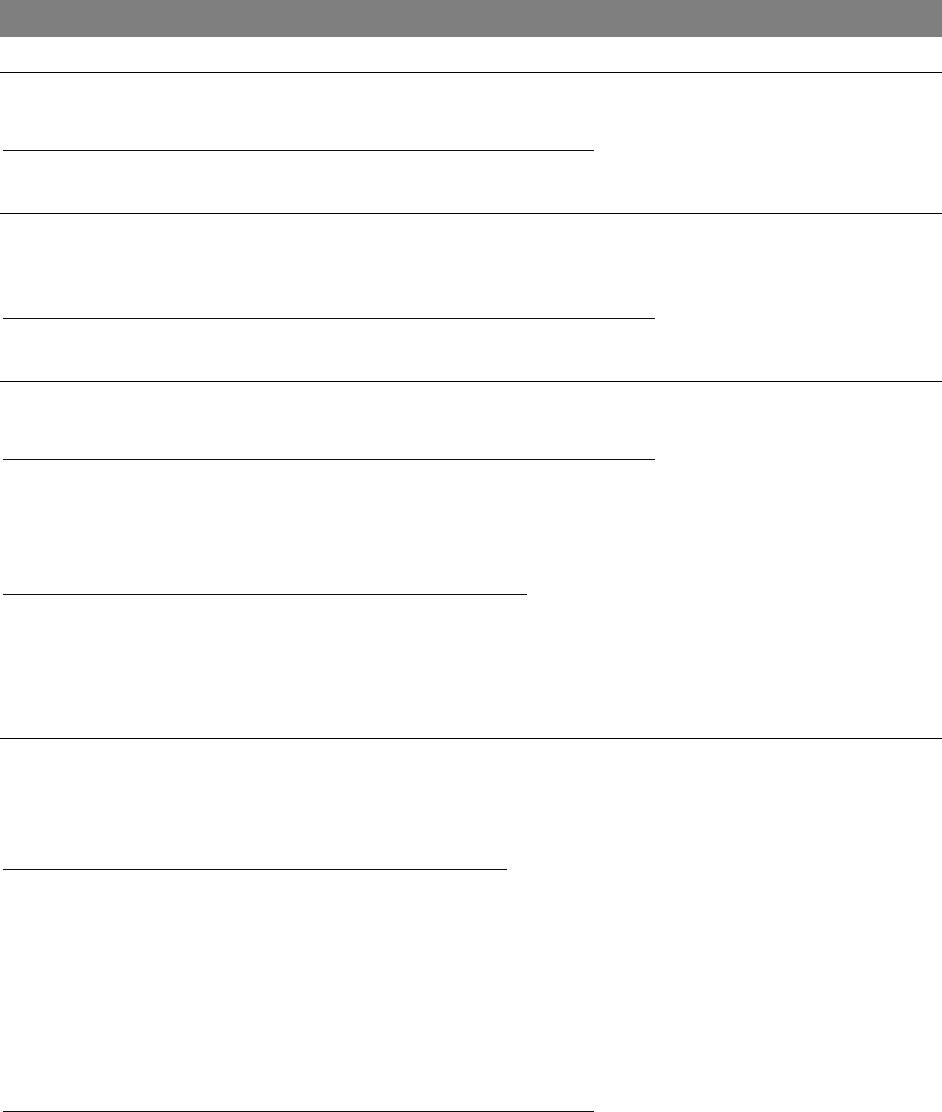
Colorado School of Public Health
HSR MS Program | 2022-2023 Student and Advisor Handbook
Revised July 2022 17
their program and be considered with all other applicants. A leave of absence does not automatically
extend the time limit set forth for graduation.
Academic Information
Academic Calendar
Please visit the website for the current academic calendar:
https://coloradosph.cuanschutz.edu/education/calendars-policies
ColoradoSPH Course Book
The ColoradoSPH Course Book, which provides descriptions of all approved courses at all three
campuses, is available at:
https://coloradosph.cuanschutz.edu/education/courses-and-registration
Registration
Course offerings, course book, academic calendar and registration dates are available on the website:
https://coloradosph.cuanschutz.edu/education/courses-and-registration
All students of the Colorado School of Public Health register for courses through UCD Access. Students
must have a CU email address to access the registration system.
https://portal.prod.cu.edu/UCDAccessFedAuthLogin.html
Students enrolling for the first time must meet with the program director prior to fall semester for
annual academic advising before they can utilize web based registration.
Dropping & Adding a Course
The drop/add period extends 1-2 weeks after the first day of the fall and spring semesters and one week
after the start of the summer semester. To drop or add a class during the drop/add period, please log
onto the registration portal – UCD Access – at:
https://portal.cusys.edu/UCDAccessFedAuthLogin.html
Dropping courses after the drop/add deadlines will result in 0% tuition and fee reimbursement and a
corresponding grade of “W” (withdrawal) will be reflected on the transcript.
Permission to register or drop a course after the add/drop period will be granted only in extenuating
circumstances and requires the approval of the Assistant Dean of the Graduate School.
The drop/add deadlines can be found on the Academic Calendar at:
https://coloradosph.cuanschutz.edu/education/calendars-policies

Colorado School of Public Health
HSR MS Program | 2022-2023 Student and Advisor Handbook
Revised July 2022 18
Course Withdrawal Policy & Timeframe
If a student wishes to withdraw from the university, he/she should obtain a withdrawal form from the
CU Anschutz Medical Campus Registrar’s office or website:
https://www1.ucdenver.edu/docs/librariesprovider266/forms/withdrawal-form_official-
university.pdf?sfvrsn=add3a5b9_2
Withdrawal from a course is a formal discontinuation of the course after the drop/add period, and
results in a grade of “W” on the student’s official transcript. If attendance in a current course is
discontinued without an official withdrawal, the student’s transcript will reflect the grade earned for
that course. Withdrawals from courses are not eligible for tuition reimbursements.
.
• 100% reimbursement will be granted if a course is dropped before classes begin or during the
drop/add period (see ColoradoSPH Academic Calendar for semester deadlines)
• There will be no reimbursement for withdrawal after the drop/add period and a grade of “W”
(withdrawal) will be reflected on the transcript.
Auditing Courses
The CU Anschutz Medical Campus does not allow auditing of courses. Students may register for a
course for “No Credit,” but must pay the full tuition and fees. Students must designate “No Credit” by
the appropriate deadlines as set forth by the Registrar’s Office. No Credit forms are available from the
CU Anschutz Medical Campus Registrar’s Office:
https://www.cuanschutz.edu/registrar/student-resources/forms
Registering for Courses on Other CU Campuses
ColoradoSPH students are able to register for UC Denver (downtown) campus courses with the UCD
Access registration system, given that any prerequisite requirements are met. Registration can only be
conducted during the drop/add period at the host (downtown) campus. The ColoradoSPH tuition rate
will be assessed for any courses taken downtown, unless the student is enrolled in a dual degree
program with the downtown campus. If the student wishes to apply a course taken at UCD downtown
toward program requirements, he or she must secure faculty advisor approval prior to taking the
course. See “Electives outside ColoradoSPH” below.
Students who would like to enroll for a course on the Boulder or Colorado Springs campuses do not
register on UCD Access. Instead, they must complete the Intercampus Enrollment Form found on the
Anschutz Medical Campus Registrar’s Office at:
https://www.cuanschutz.edu/registrar
Approval from both the host and home campuses is required. After all signatures have been obtained,
the completed form should be return to the CU Anschutz Medical Campus Registrar’s Office for
processing. Students must be registered for at least one course on their home campus in order to add a
concurrent class on either the Boulder or Colorado Springs campuses.

Colorado School of Public Health
HSR MS Program | 2022-2023 Student and Advisor Handbook
Revised July 2022 19
Incomplete Coursework
In the case that a student cannot complete a course during the regular semester, the student may
request an “incomplete” grade in the course, which will enable the student to complete the course
during the following semester. Students who have been approved for an “incomplete” and need to
continue the course should not re-register for the course on UCD Access or duplicate tuition will be
charged. If an ’incomplete” grade has been approved and continued access to online materials (i.e.,
Canvas) is needed, please contact the Office of Academic Affairs. Students should not re-register for
the course.
Students have one year to finalize incomplete coursework and solidify their grade. If the coursework is
not completed in that timeframe, a grade of “F” will automatically be applied to the student’s
transcript.
Transfer Credits
Graduate School rules allow students to transfer up to 12 semester credits towards a MS degree for
courses taken either at another university or as a non-degree student at UCD. Courses taken at any CU
campus by students enrolled in a program are not considered transfer credits.
Transfer of credit from other universities must meet the following criteria:
1. The course must be graduate level, i.e., offered within the degree program at the 5000-level or
above.
2. If offered outside the degree program, (including transfer credits), are 5000- equivalent level or
higher and are approved for a specific degree plan by the program.
3. The grade must be at least a B- for MS students and at least a B for PhD students.
4. The student must have at least a 3.0 GPA in our program after at least one semester in the
program.
5. The work must have been completed within the past five years or validated by a Program
Director to ensure that the content has not significantly changed since the courses were taken.
6. The student must submit an outline and/or syllabus from the course to a program director for
content review.
7. The request for transfer must be made on a form obtained from the Graduate School. The form
must be completed by the student, endorsed by the advisor and the program director, and sent
to the Graduate School along with an official transcript showing the course.
Waiving Courses
If a student believes that he/she has covered the content of a required course in previous course work,
he/she may request to waive the course. To waive a course, the student consults the instructor teaching
the course, bringing evidence of his/her previous work in the subject. With approval from the Instructor,
Program Director, and Associate Dean for Academic Affairs, the student can substitute the course
requirement with an equivalent number of hours in an elective course or independent study.
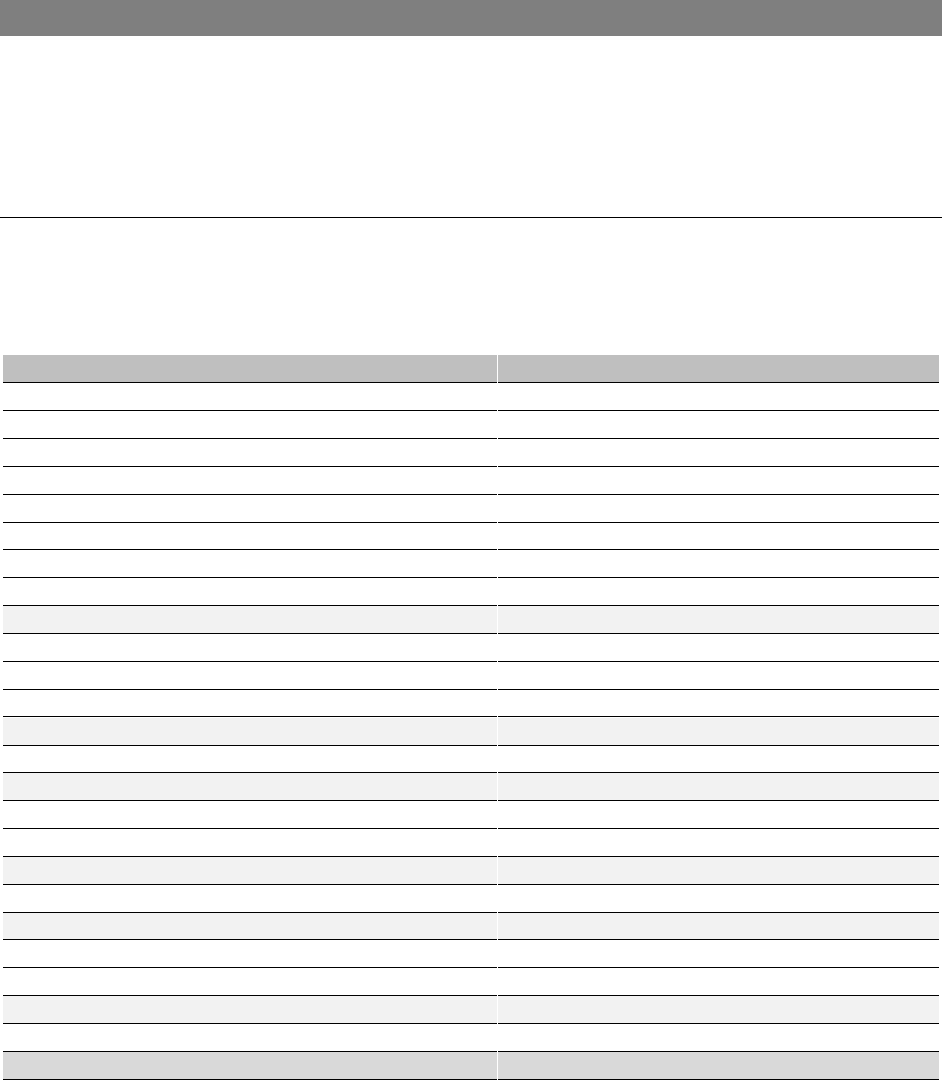
Colorado School of Public Health
HSR MS Program | 2022-2023 Student and Advisor Handbook
Revised July 2022 20
Degree Plans
Coursework Requirements
Students who have had some of the required (or equivalent) courses prior to admission into the
program may be allowed to substitute credit hours using those courses. The following tables list the
credit hours required to complete the MS in Health Services Research.
MS Requirements
Coursework Prerequisites
Students are required to have taken one semester of calculus prior to entrance in the program. The
following table lists the credit hours required to complete the program.
Course Title
Course Number
Credit Hours
Health Care Economics
HSMP 6604
3
Health Policy
HSMP 6605
3
Cost Benefit/Effectiveness
HSMP 6609
2
Health Policy Analysis and Communication
HSMP 6616
1
Foundations in HSR Seminar
HSMP 7010
2
Research Design and Proposal Preparation
HSMP 7601
3
Methods in HSR I
HSMP 7607
3
Methods in HSR II
HSMP 7609
3
Total HSR Core Credits
20
Biostatistical Methods I
BIOS 6611
3
Biostatistical Methods II
BIOS 6612
3
SAS Database Design & Management
BIOS 6680
3
Total BIOS Credits
9
Social & Behavioral Factors and Health
CBHS 6610
3
Total CBHS Credits
3
Ethics and Responsible Conduct of Research
CLSC 7150
1
Clinical Outcomes and Application
CLSC 7202
3
Total CLSC Credits
4
Epidemiology
EPID 6630
3
Total EPID Credits
3
Foundations in Public Health*
PUBH 6600
2
Public Health Concepts of Non-MPH*
EHOH 6601
1
Total PUBH Credits
3*
MS/HSR Thesis or Research Paper
HSMP 6950 or HSMP 6651
4
Total Credits
43 or 46
*Required for students without a prior CEPH-accredited graduate degree

Colorado School of Public Health
HSR MS Program | 2022-2023 Student and Advisor Handbook
Revised July 2022 21
MS Example Sequence
Year 1
Fall
Social and Behavioral Factors in Health (CBHS 6610) (3 credits)
Biostatistical Methods I (BIOS 6611) (3 credits)
SAS Database Design & Management (BIOS 6680) (3 credits)
Foundations in HSR Seminar (HSMP 7010) (1 credit)
Intro to Health Policy Analysis (HSMP 6616) (1 credit)
Spring
Biostatistical Methods II (BIOS 6612) (3 credits)
Health Care Economics (HSMP 6604) (3 credits)
Cost Benefit/Effectiveness (HSMP 6609) (2 credits)
Foundations in HSR Seminar (HSMP 7010) (1 credit)
Summer
Foundations in Public Health (PUBH 6600) (2 credits)
Year 2
Fall
Methods in Health Services Research I(HSMP 7607) (3 credits)
Clinical Outcomes & Applications (CLSC 7202) (3 credits)
Epidemiology (EPID 6630) (3 credits)
Spring
Health Policy (HSMP 6605) (3 credits)
Research Design and Proposal Preparation (HSMP 7601) (3 credits)
Methods in Health Services Research II (HSMP 7609) (3 credits)
Ethics in Research (CLSC 7151) (1 credit)
Year 3
Summer/Fall/
Spring
MS HSR Thesis or Research paper (HSMP 6950 0r 6651) (4 credits)
Final MS Exam
MS Competencies
MS Health Services Research Competencies
MS HSR 1- Identify the main components and issues of the organization, financing, and delivery of
health services and public health systems in the U.S.
MS HSR 2- Identify and measure clinically meaningful and/or policy relevant outcomes and apply
evidence-based practice principles.
MS HSR 3- Critically appraise existing literature and evaluate manuscripts published in peer-reviewed
journals
MS HSR 4- Demonstrate breadth of health services research theoretical and conceptual knowledge by
applying alternative organizational and behavioral models from a range of relevant disciplines.
MS HSR 5- Pose innovative and important health service research questions, informed by systematic
reviews of the literature, stakeholder needs, and relevant theoretical and conceptual models.
MS HSR 6- Select the appropriate econometric/statistical specification and estimation technique,
including using specification tests and theoretical justifications for distributional assumptions, the
choice of link function, and estimation approach for a variety of outcomes
MS HSR 7- Choose and define the appropriate unit of analysis and approach to computing standard
errors for conducting hypothesis test.
MS HSR 8- Understand and apply methods for causal inference and identify the assumptions that may
or may not hold for a causal interpretation.
MS HSR 9- Write and know how to submit grant proposals to federal, state, and non-governmental
organizations.
MS HSR 10- Describe legal, ethical and regulatory issues related to clinical research.
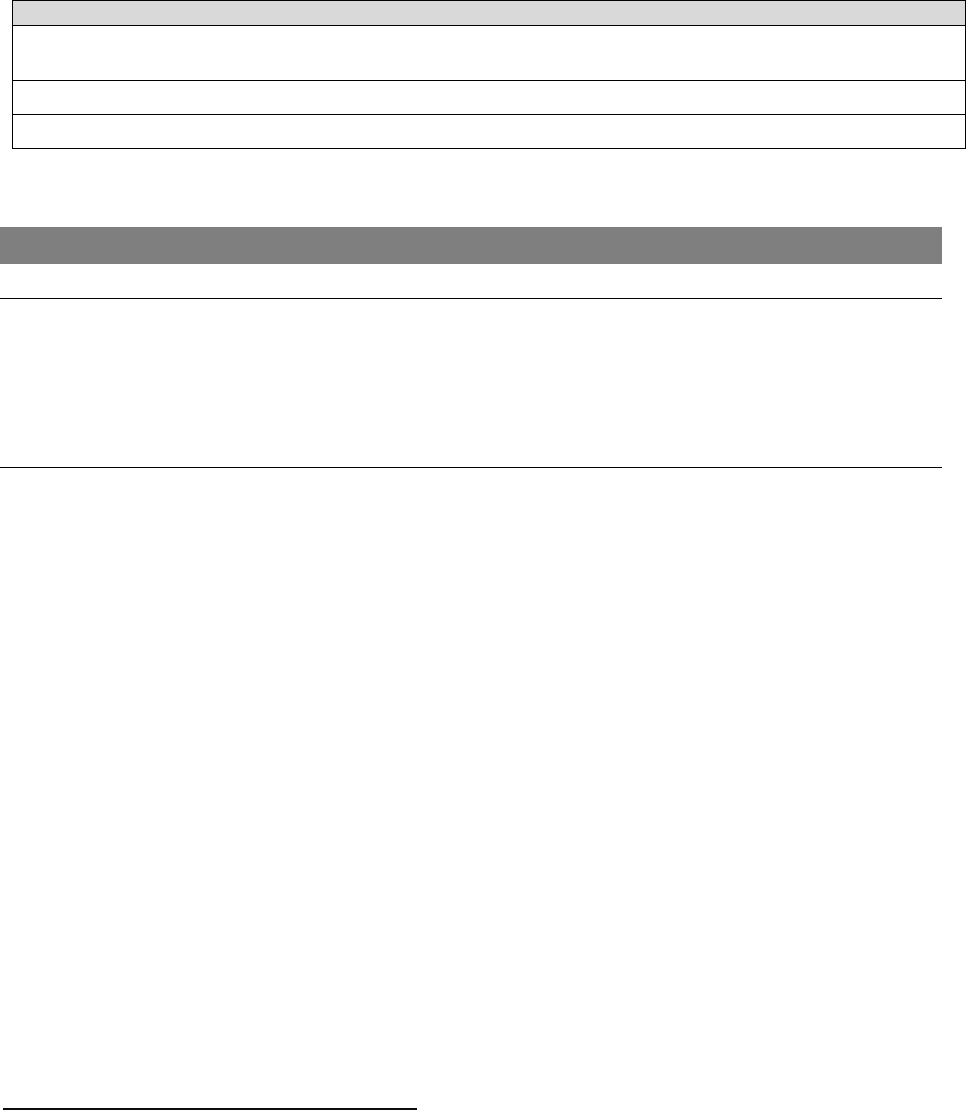
Colorado School of Public Health
HSR MS Program | 2022-2023 Student and Advisor Handbook
Revised July 2022 22
MS Health Services Research Competencies
MS HSR 11- Demonstrate the ability to effectively communicate the findings and implications of health
service research findings to technical and lay audiences.
MS HSR 12- Design and conduct research studies using health services research methods
MS-HSR 13- Discuss the policy process for improving the health status of populations.
MS Program Guidelines
Electives
No elective course are required for the MS in HSR. Students may opt to take additional elective course
work at the Colorado School of Public Health and in other departments and campuses of the University
of Colorado. Students should receive approval from their academic advisor and program director as to
the appropriateness of courses for elective credit.
MS Thesis or Research Proposal
After completing the first year of coursework, students should assemble a thesis or research paper
committee. The committee should have at least three members, and the majority of the members,
including the chair, must be from the Health Systems, Management, and Policy core-training faculty.
The student should arrange committee meetings at least twice a year to discuss progress and a timeline
for completing the thesis or research paper, and should meet with their mentor/chair more often.
First, a proposal is developed based on the NIH format, outlining the background, significance and
specific aims for the proposed research. In addition, a detailed methods section should be developed to
demonstrate understanding of study design issues and the analytic approach along with any
preliminary findings. The student then gives a presentation of the proposal to the committee (this is not
a formal Graduate School exam). When the committee approves the proposal, the members of the
committee sign the proposal acceptance form. The acceptance form is forwarded to the academic
affairs specialist and placed in the student's file along with a copy of the proposal. Minutes of the
regular committee meetings are forwarded to the academic affairs specialist for the student's file to
document progress in their research.
Note: Students must receive approval of their committee from the Program Director at least 3 months
prior to scheduling the final examination. Please see the Core Program Faculty policy included in this
handbook.
All committee members must have, or be eligible for, a Graduate School faculty appointment. A
Graduate School faculty appointment listing is posted on-line at:
https://gs.ucdenver.edu/tbl_gradfac_curr.php
The student must provide a current curriculum vitae (CV) for any committee member who requires a
Graduate School faculty appointment to the Academic Affairs Specialist who will process the
appointment.

Colorado School of Public Health
HSR MS Program | 2022-2023 Student and Advisor Handbook
Revised July 2022 23
Application for Admission to Candidacy
Students must complete the application for admission to candidacy for the MS degree. The student
obtains signatures from their advisor .The student then forwards the form to the Program Director for
verification of the courses listed that are to be applied towards the degree and signature. The student
then submits the form to the academic affairs specialist at least two weeks prior to the final exam
date. Once all signatures have been obtained the academic affairs specialist will submit the form to the
Graduate School at least two weeks prior to the exam. The required form can be obtained from the
Graduate School website:
https://graduateschool.ucdenver.edu/forms-resources/resources
In addition to the Application for Admission to Candidacy, students must also submit an application for
graduation through the UCD Access student portal before the posted deadline for the graduation
semester.
MS Degree Final Examination
All candidates for the MS degree are required to take a final examination after all other requirements
for the degree have been completed and approval for graduation has been granted. The final
examination is a presentation and defense of the thesis or research paper, as well as questions from the
committee. The research paper or thesis must be submitted to and approved by the examining
committee before scheduling the final examination. Students must submit the Request for Graduate
Examination/Thesis Defense form. Students must also obtain the Program Director’s signature on the
form. Students then submit the form to the academic affairs specialist at least two weeks before the
exam date. The Academic Affairs Specialist will submit the form to the Graduate School at least two
weeks prior to the exam. The Request for Examination/Thesis Defense form can be found on the
Graduate School website:
https://graduateschool.ucdenver.edu/forms-resources/resources
The examination committee will conduct the final examination orally. The defense consists of a
seminar of 40-50 minutes, is generally open to the public unless otherwise specified, and is followed by
an oral examination by the committee. All members of the committee must be present for the
examination. One member, but not the chairperson or the student, may participate by interactive
video. Below is a list of the possible outcomes:
Pass – You must receive the affirmative votes of the majority of the members of your committee in
order to pass.
Pass with conditions – The committee may feel that although you have passed the examination you
should complete additional work on the thesis. These conditions will be specified and must be satisfied
within 4 months of the defense. Failure to satisfy these conditions will result in failure of the
examination.
Fail – If you fail the examination, per Graduate School rules you may be subject to immediate dismissal
from the program. At the program’s discretion, you may be allowed to retake the examination once.
The retake will be in a format designated by the committee and must be completed by the end of the
next academic semester, excluding the summer term. It is important to note that students will be

Colorado School of Public Health
HSR MS Program | 2022-2023 Student and Advisor Handbook
Revised July 2022 24
required to meet registration and enrollment requirements for the semester in which they re-take the
examination.
A MS thesis is submitted to the Graduate School according to their format. A MS research paper is
submitted to a journal. Consult the Graduate School graduation deadlines calendar for the dates of
submission.
Graduation
Students must apply for a diploma for their intended semester of graduation by submitting an “Apply
to Graduate” form through the UCD Access student portal by the specified deadline for the graduation
term.
Ceremonies
A campus-wide commencement ceremony is held once a year in May on the CU Anschutz Medical
Campus. All graduates for that academic year, plus the following summer, are invited to attend.
Students graduating in May or the previous August or December can attend the Graduate School
graduation ceremony. The graduation ceremony is usually held on the last Friday in May. In addition,
the Colorado School of Public Health offers a separate Convocation ceremony for its graduates.
Official regalia must be worn to participate in these ceremonies. Additional details will be posted on the
website and emailed to students prior to the event.
Time Limit
MS students have five (5) years to complete all degree requirements, including the filing of the thesis or
submitting the research paper, for the degree. Students who fail to complete the degree requirements
within the five-year time period are subject to termination from the Graduate School upon
recommendation from the program director and concurrence of the Assistant Dean of the Graduate
School. Requests for extension will be considered under extenuating circumstances only.
Departmental Copy of Thesis or Research Paper
The program requests that a professionally bound or electronic copy of the thesis or research paper be
provided to the department.

Colorado School of Public Health
HSR MS Program | 2022-2023 Student and Advisor Handbook
Revised July 2022 25
Organization and Content of Courses
Core Courses
HSMP 6604 | Health Care Economics | 3.0 Credits | Campus: AMC – Spring
Uses economic theory to analyze and understand the U.S. health care system. Topics include: demand
and supply of health and health care, health insurance, hospitals, pharmaceuticals, and physicians.
Analyzes institutional and legal incentives that affect physician, patient, and insurer decision-making.
HSMP 6605 | Health Policy | 3.0 Credits | Campus: AMC – Spring
Course focuses on important U.S. health policy issues and the analysis, implementation,
communication skills for the practice of health policy. Evaluation is based on in-class labs, group
projects, and analysis paper of a health policy case example.
HSMP 6609 | Cost Benefit and Effectiveness in Health| 2.0 Credits | Campus: AMC – Spring
(Prereq: HSMP 6604 or permission of instructor required) Introduces students to the basics of economic
evaluations of health care interventions or technology. Economic evaluations provide a method to
assimilate different cost and health outcomes associated with medical treatments into a common
metric.
HSMP 6616 | Introduction to Health Policy Analysis and Communication | 1.0 Credit | Campus: AMC
– Fall
(Students take one section for five weeks during the semester) Introduces a framework for systemically
and critically evaluating the health policy literature. Reviews effective oral and written communication
skills for presenting policy analyses. Evaluation is based on a written analysis of a policy paper of the
student’s choosing.
HSMP 7010 | Foundations in HSR (seminar) | 1.0 Credit | Campus: AMC – Fall, Spring (permission of
instructor required)
Introduces students to the academic health services research literature. This seminar course requires
students to participate in small seminars led by faculty on different health services research topics plus
attending larger HSMP departmental seminars. Evaluation is based on weekly papers.
HSMP 7601 | Research Design and Proposal Preparation | 3.0 Credits | Campus: AMC – Spring
Research as a systemic method for examining questions derived from related theory and/or health
service practice. Major focus is on the logic of causal inference, including the formation of testable
hypotheses relating to health services organization and management, the design of methods and
measures to facilitate study.
HSMP 7607 | Methods in Health Services Research I | 3.0 Credits | Campus: AMC – Fall (Prereq: BIOS
6611)
The first of a 2-course sequence in empirical methods in health services research. The statistical theory
underlying basic empirical methods and the thoughtful implementation/practice of these methods are
emphasized. Topics covered include: OLS, Gauss-Markov assumptions, logit/probit. Stata will be used.

Colorado School of Public Health
HSR MS Program | 2022-2023 Student and Advisor Handbook
Revised July 2022 26
HSMP 7609 | Methods in Health Services Research II | 3.0 Credits | Campus: AMC – Spring (Prereq:
HSMP 7607)
Students will learn how to specify and estimate econometric models to test theory-driven hypotheses.
The course builds on HSMP 7607 and covers advanced methods related to panel/longitudinal,
multinomial, survival, and count data models. Stata software will be used.
Other Courses
BIOS 6611 | Biostatistical Methods I | 3.0 Credits | Campus: AMC – Fall
This is a course in applied statistics covering elementary probability, descriptive, parametric and non-
parametric methods for one and two sample estimation/testing and some common simple cases of the
univariate general linear model. The statistical package SAS used extensively.
BIOS 6612 | Biostatistical Methods II | 3.0 Credits | Campus: AMC – Spring
The is a continuation of BIOS 6611, covering univariate linear modeling and emphasizing multiple
regression and analysis of variance. Logistic regression and methods for correlated data are also
covered. Matrix algebra and statistical package SAS will be used.
BIOS 6680 | SAS Database Design and Management | 3.0 Credits | Campus: AMC - Fall
Course introduces students to how SAS can be used to manipulate data and prepare it for analysis:
inputting, recoding, reformatting, subsetting, merging data, and simple reports and SAS Macros.
Principles and implementation of database design will also be discussed.
CBHS 6610 | Social and Community Factors in Health | 3.0 Credits | Campus: AMC – Spring,
Summer, Fall
Considers social, behavioral, and cultural factors that affect the health of individuals and populations,
and contribute to health disparities. Development, implementation and evaluation of programs and
policies to promote and sustain healthy environments and lifestyles are examined. Online in the
summer.
CLSC 7151 | Ethics in Research | 1.0 Credit | Campus: AMC – Fall, Spring, Summer (check online
course book for availability)
This course provides an overview of the field of ethics in clinical research. Participants learn the
historical background, current regulations, and IRB requirements. Hands-on experiences will develop
approaches to address conducting ethical research in an optimal manner. In addition, participants will
learn the essentials of responsible research conduct.
CLSC 7202 | Clinical Outcomes and Applications | 3.0 Credits | Campus: AMC – Fall
This course focuses on methodologies used in clinical care, costs, health systems, policy and health
outcomes, as well as an overview of major issues in clinical outcomes research. Students are provided
with both theory and application through case studies.

Colorado School of Public Health
HSR MS Program | 2022-2023 Student and Advisor Handbook
Revised July 2022 27
EPID 6630 | Epidemiology | 3.0 Credits | Campus: AMC – Fall, Spring
Introduction to approaches/methods used in describing the natural history of disease in the community
and for locating clues to causes of disease and analytical epidemiology used in the study of disease
etiology and critical review of the public health literature.
PUBH 6600 | Foundations in Public Health | 2.0 Credits | Campus: AMC – Fall, Spring, Summer =
This course examines the historical and conceptual bases of public health, the key issues and problems
faced by the public health system, and the tools available for the protection and enhancement of the
public’s health.
EHOH 6601 | Public Health Concepts for Non-MPH | 1.0 Credits| Campus: AMC- Fall, alternate years
This course is for MS, PhD, and DrPH students without a prior graduate degree from a CEPH-accredited
school, and addresses additional foundational public health knowledge not covered in Epidemiology or
Foundations in Public Health.

Colorado School of Public Health
HSR MS Program | 2022-2023 Student and Advisor Handbook
Revised July 2022 28
HSR Core Program Faculty Policy
To be listed on the Graduate School HSR List, the Graduate School requires that the faculty member
listed as a Core Program Faculty. Graduate School rules require that the majority of the thesis
committee members are Core Program faculty.
Below is the policy used to define Core Program Faculty members for the Graduate Programs in HSR:
1. Faculty with a primary appointment in the Department of Health Systems, Management and
Policy at the rank of Assistant Professor or above, with a terminal degree in Health Services
Research or equivalent. Such faculty may serve as chairs, mentors or regular members of thesis
committees.
2. Faculty with a secondary appointment in HSMP or with a primary appointment in another
Department at the Colorado School of Public Health, at the rank of Assistant Professor or
above, with a terminal degree or equivalent who are demonstrating strong commitment to
graduate student education. Such faculty may serve as mentors or regular members of thesis
committees.
Strong commitment to graduate student education is demonstrated in the form of ongoing or
anticipated involvement in at least two of the following activities:
• Direct thesis research as principal mentor.
• Teaching graduate course(s) as the director (or co-director).
• Serve on graduate student examination and/or thesis committees.
Appointment Requests need to be approved by the Director of the Graduate Program and the
Department of Health Systems, Management and Policy at ColoradoSPH before submission to the
Graduate School Review Committee.
